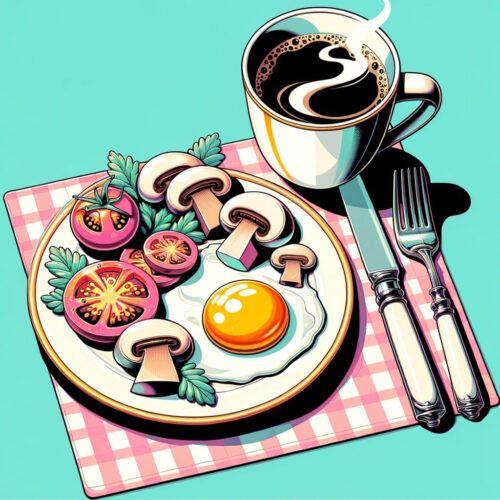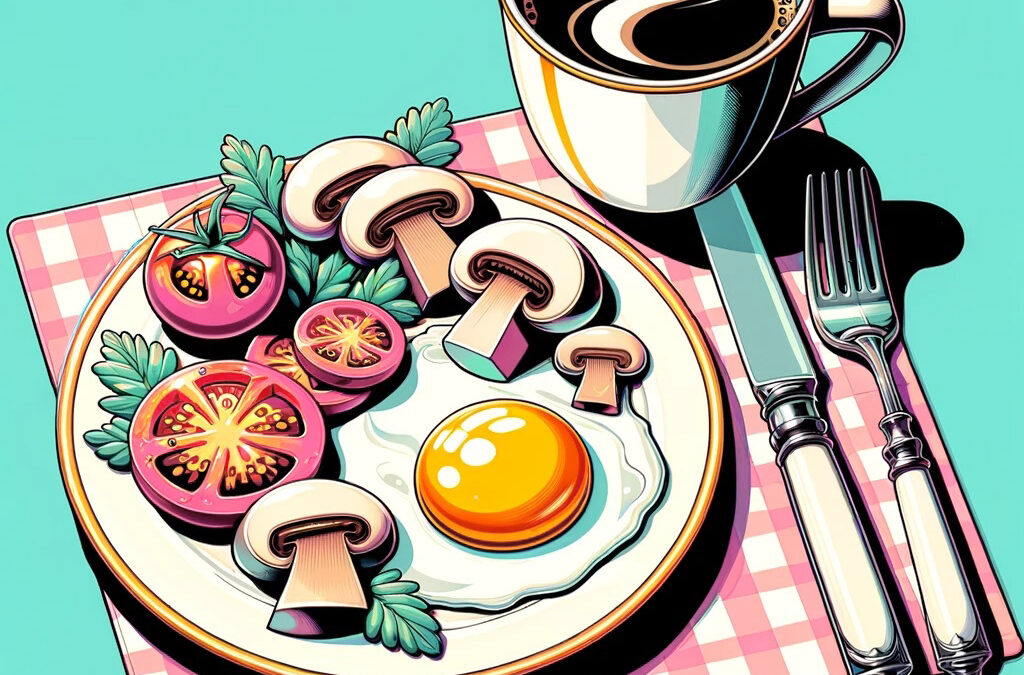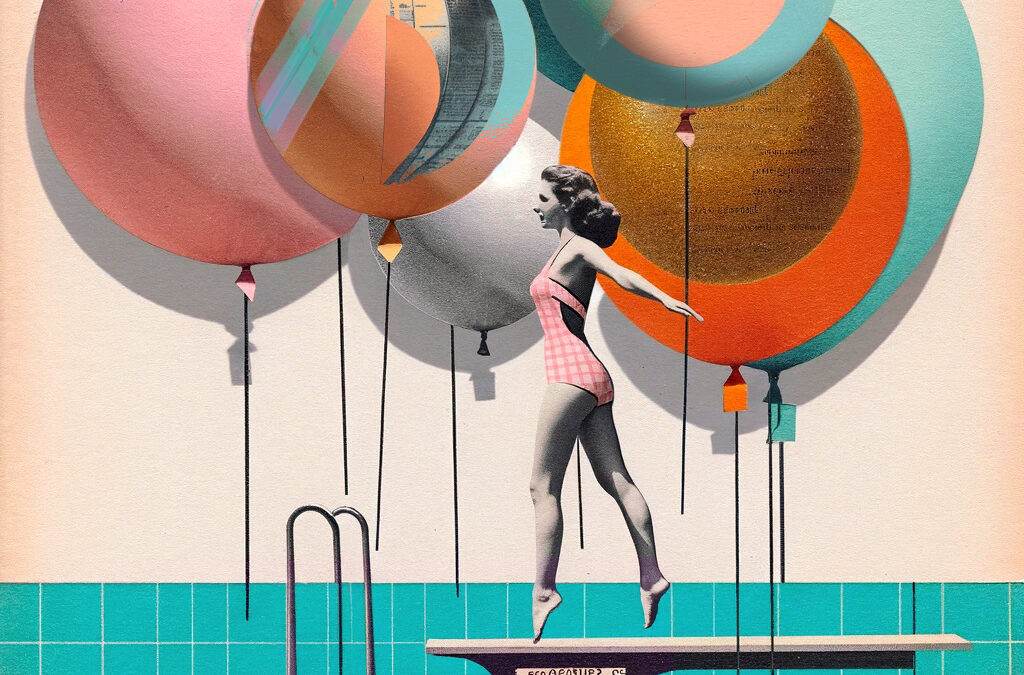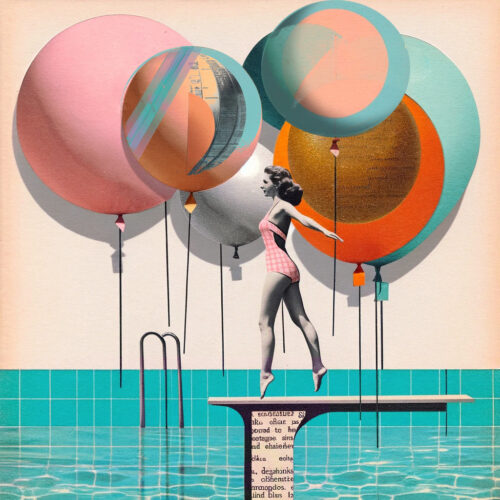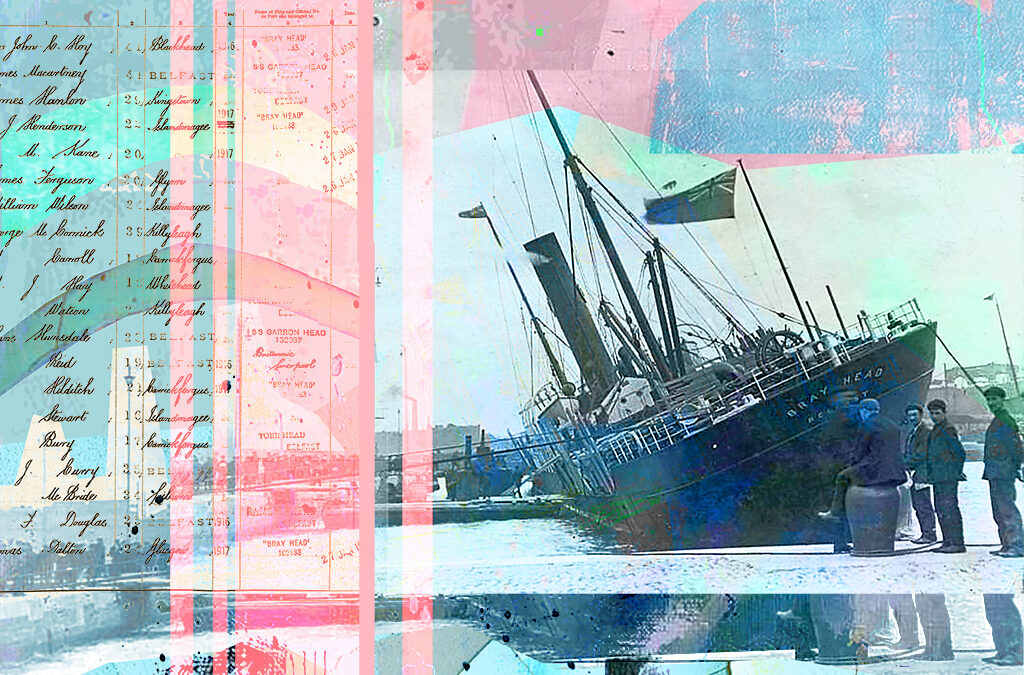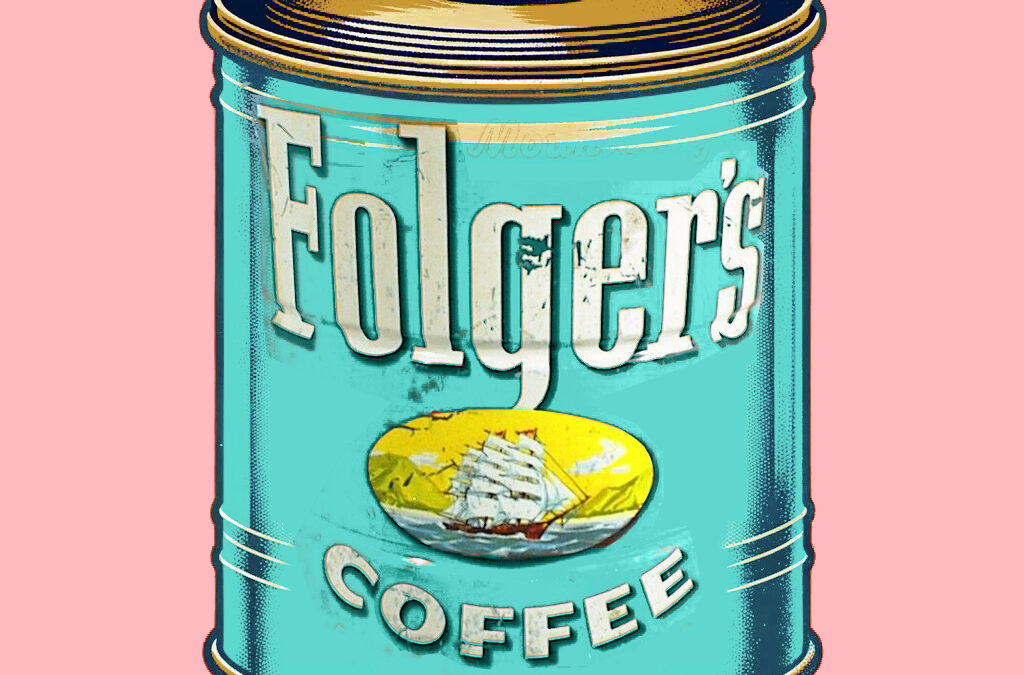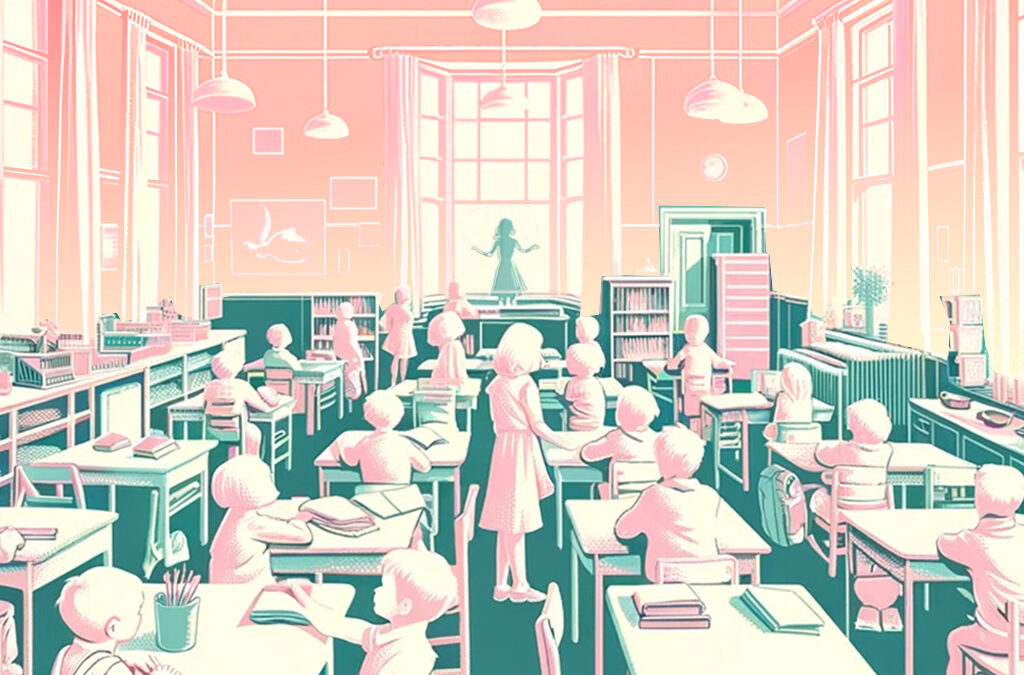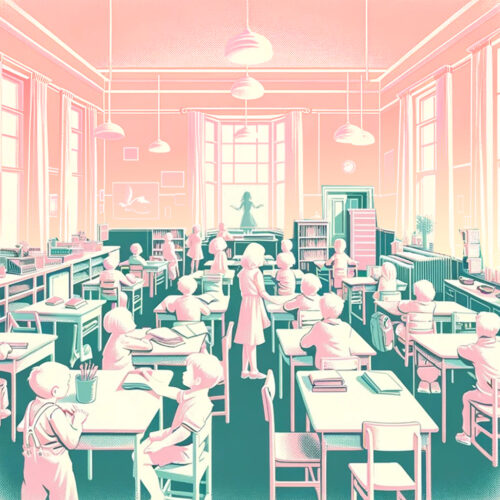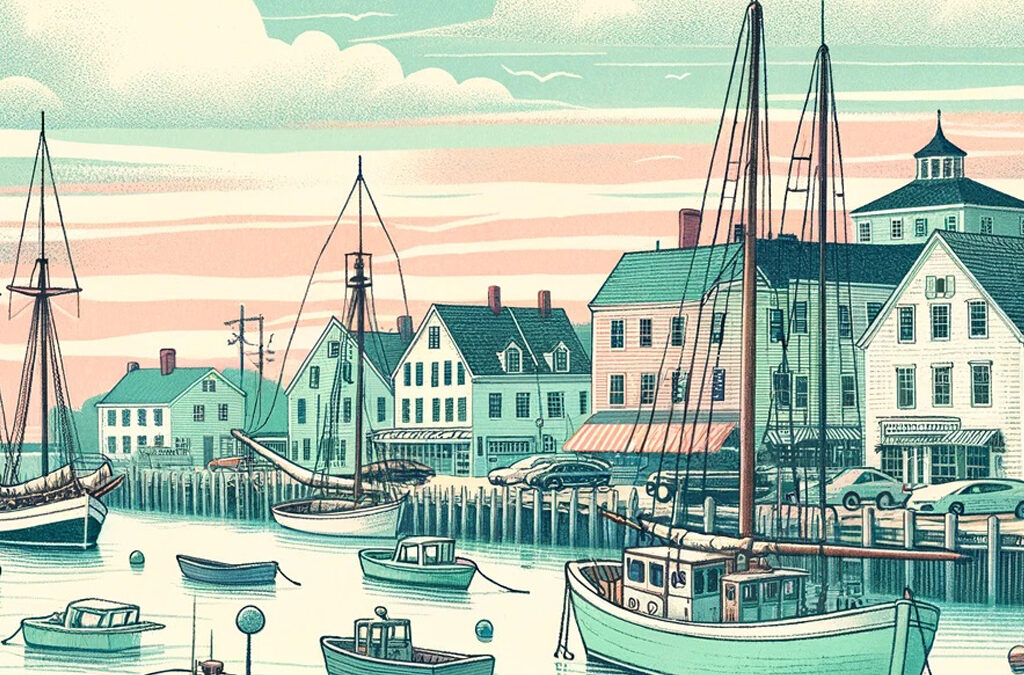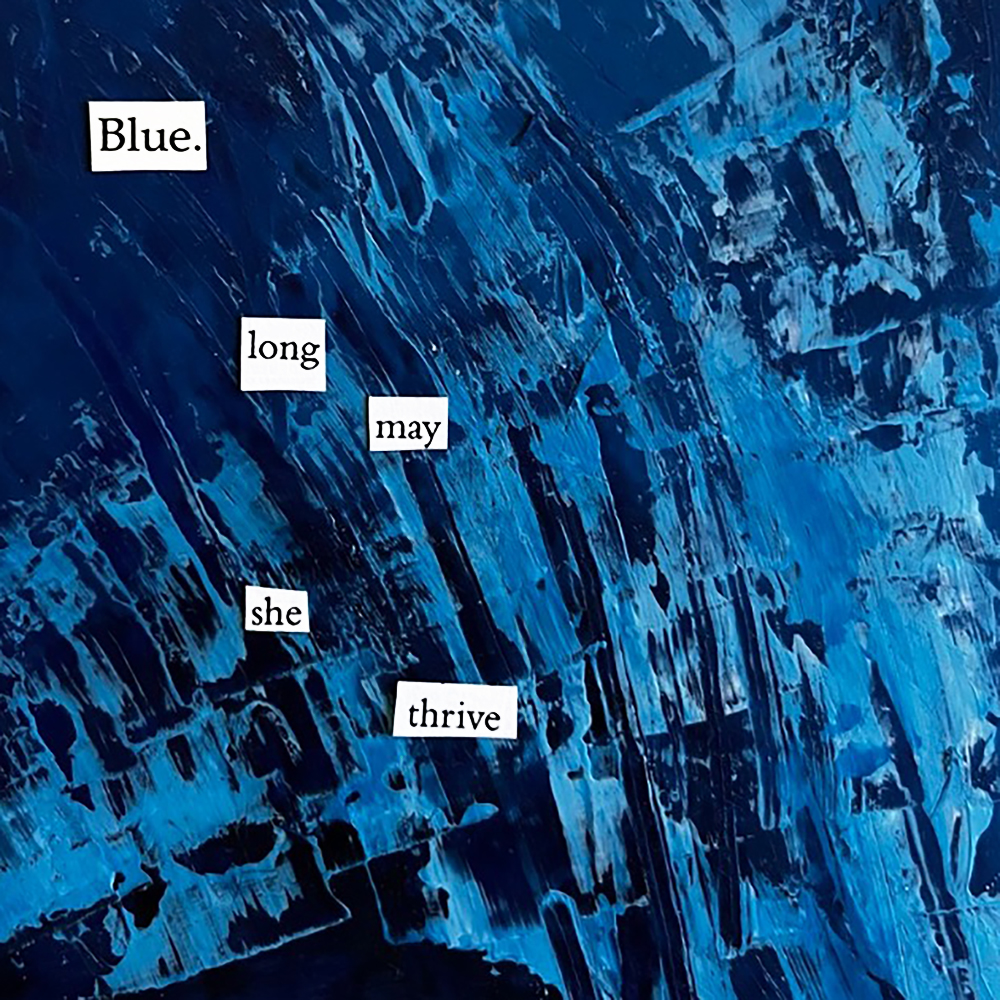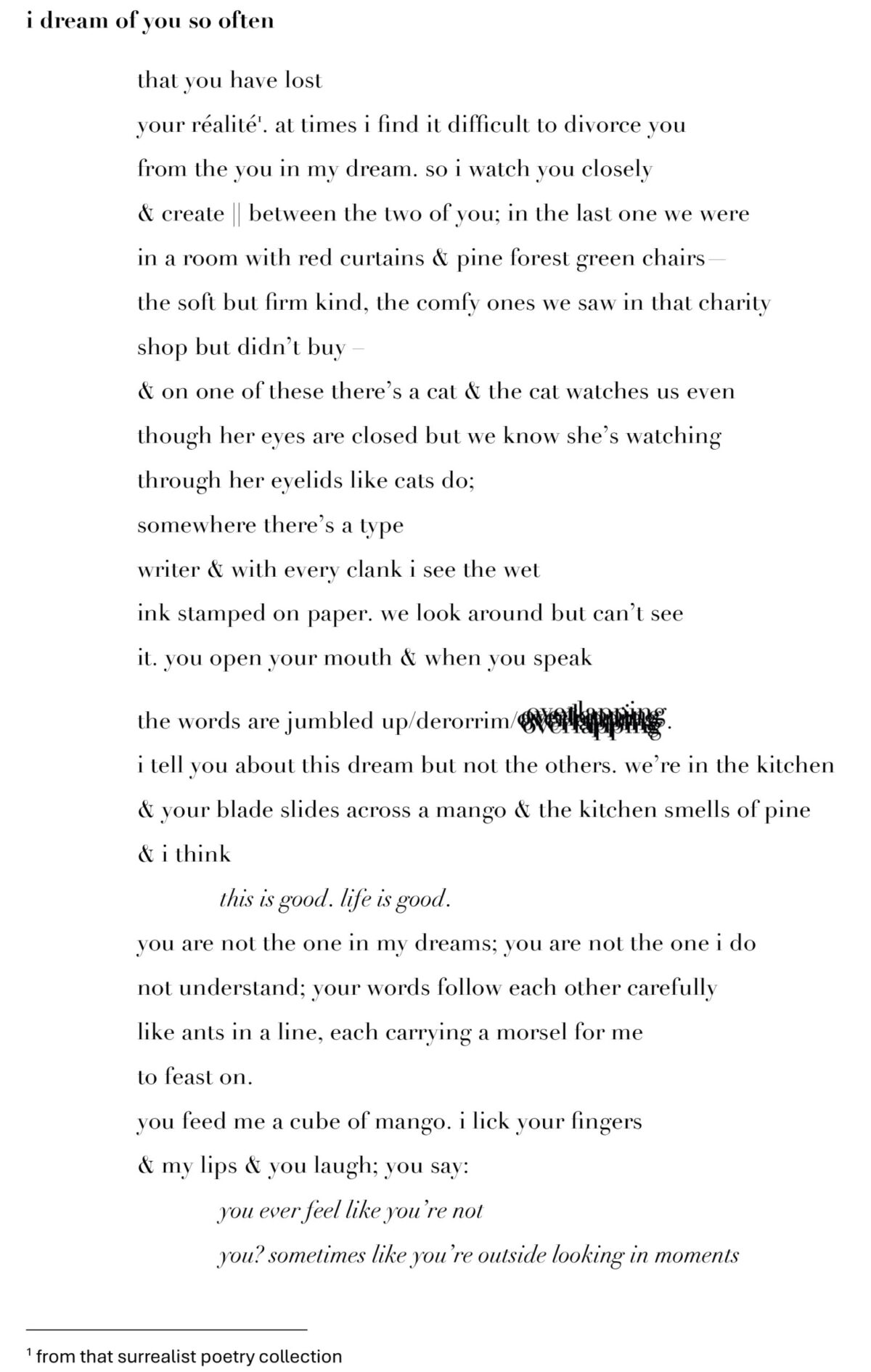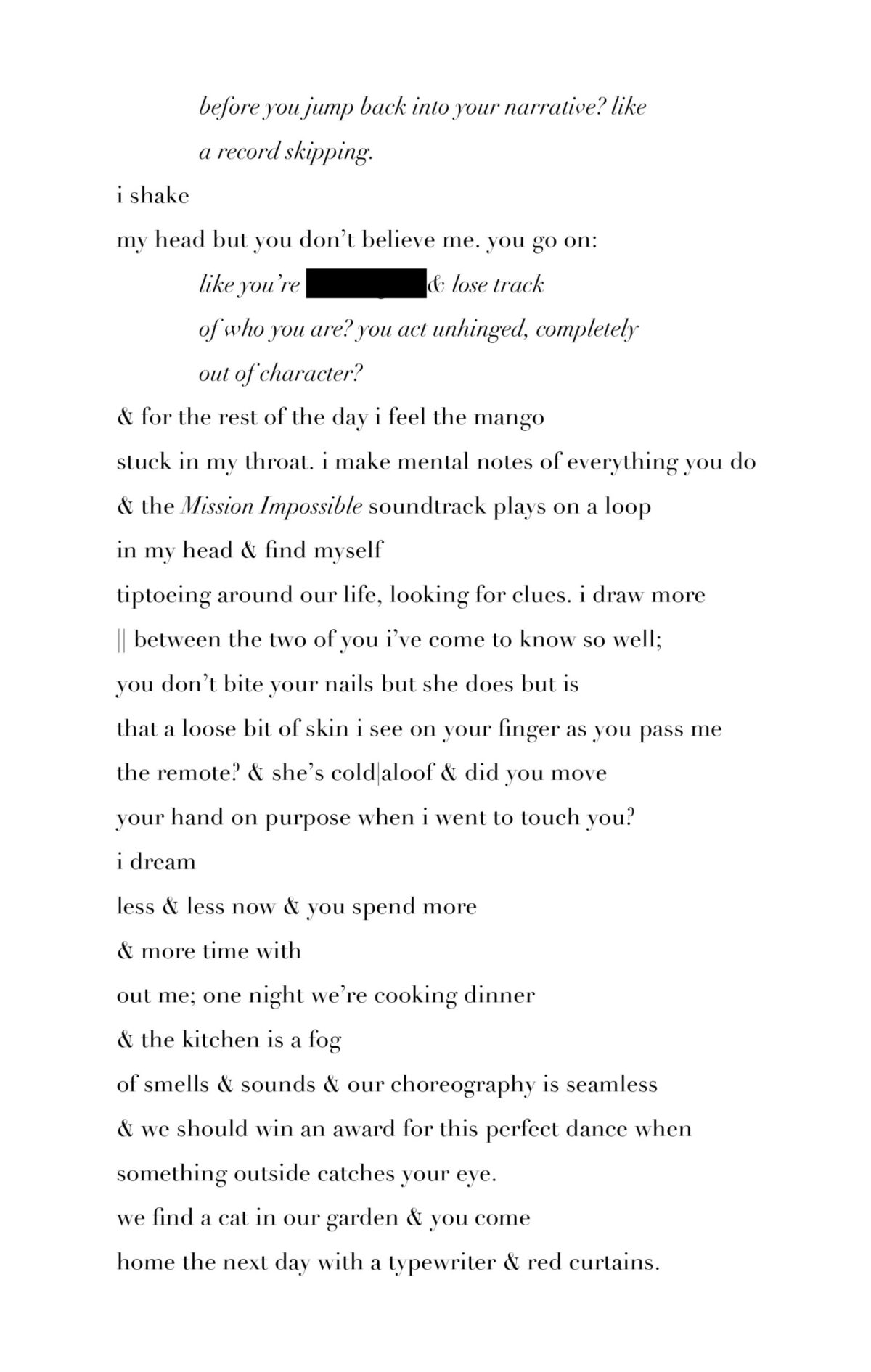We all became thieves eventually. My sister and I just watched at first, as our three older brothers stole things, regularly and with a shameless vigor. It started with candy. Abba Zabbas, Jolly Ranchers, long powdery gum sticks, jaw breakers, mountain bars, cherry and regular, and any penny candies they could quickly stuff into the pockets of their stiff, Tuffy Jeans from JC Penney’s.
One summer when I was six and my little sister Ros was five, we convinced our brother Paul to let us come with him when he walked into town. The five of us were on our own in the summer, supervised only by our oldest brother Luke. We headed to Lupoi’s market, Paul’s favorite store for stealing candy. Lupoi’s had two entrances, one at the front of the store where the cash register was and one at the back of the store by the butcher counter. This setup made for an easy escape after filling your pockets with pilfered goods.
My sister and I wandered through the store, looking longingly at the boxes of Fruit Loops and Sugar Pops. Our father only bought cornflakes or cheerios in bulk. Even if you covered the cereal with sugar, most of it ended up in the bottom of the bowl, while you spooned up mouthfuls of cardboard cereal. My sister and I knew to wait for Paul by the butcher case. We leaned against the cool angled glass. The pieces of bright red meat were surrounded by green plastic grass. A giant beef tongue with pale white taste buds rested on its own platform. Ros and I stuck our tongues out at each other and studied them, laughing and drooling.
Suddenly we heard my brother talking to someone. We quietly snuck over to look down the next aisle and saw one of the clerks holding my brother by the arm. Paul looked at us and shook his head ever so slightly. We knew that meant we should keep quiet. Evidentially the clerk recognized my brother and called the police. The three of us waited awkwardly to one side of the front counter while the cashier rang up customers. Two police officers arrived and escorted us to their squad car. They laughed at us as they opened the car door, calling us little baby punks. Paul’s hair was damp with sweat and sticking to the top of his forehead like an old man’s combover. He stared straight ahead as we drove through the familiar streets of our suburban town.
We pulled up to the back of the police station, located right across the street from our favorite park, the one with the good swings and a shallow wading pool they filled up in the summer. One of the two officers took Paul into a room and closed the door. The other officer motioned to us to sit on the wooden bench in the hall and wait for our father. Ros and I walked over to the bench and slid our bodies up with our hands, standing on our toes to reach the bench. We huddled next to each other, holding hands, our feet not touching the ground as we swung our legs back and forth.
‘What’s going to happen to the candy?’ Ros asked.
‘The cops are going to keep it, duh. I bet they don’t even return it, I bet they just eat it all themselves,’ I said.
‘I’m hungry,’ Ros said.
My two oldest brothers, Luke, and Brian, moved on from shoplifting to breaking into houses and stores. My youngest brother Paul, stuck to stealing candy for years, even after Lupoi’s, until he didn’t. He stole candy prodigiously everywhere he went and sold it at our elementary school during recess. Luke and Brian sometimes brought home fancy stereos systems, careful to hide their loot from our father. I learned much later that they sold most of the things they stole. They pilfered stacks of records and eight track tapes. They stole wads of cash left out on bedroom dressers, and they pinched many, many bottles of alcohol.
One Saturday morning I was listening in on one of Luke’s phone calls. Before he caught me mouth-breathing into the receiver, I heard him talking to his friend Jeff, saying something about an alarm system.
‘Wait, what did your mom say?’ Luke said.
‘Not my mom, her friend, they were talking this morning about a store being broken into on Culver Street. I thought I heard her say something about an alarm system,’ said Jeff.
‘How did her friend find out? Who else knows? Oh man, you gotta keep your mouth shut dude, don’t crack.’
‘What do ya mean, me? You gotta keep your brother Brian quiet, and no flaunting any stuff either, tell him to lay low.’
It was at this unfortunate moment that my brother Luke noticed my breathing and told me to get the F-off the phone. I carefully hung up the phone and ran outside to find my sister. I wasn’t shocked that my brothers had robbed a store, they did a lot of scary illegal things. I was more worried that my father might find out. Our mother had been dead for several years by this time. My father never spoke of her to us. He was moody and annoyed by one of us most of the time. My older brothers still had the memory of her face. I did not. The only memory I had was of not having her. She became my secret deity of unconditional love.
Both my older brothers had already been to Juvenile Hall multiple times. We had a court appointed social worker who came to check on us once a month. When any of my brothers got into trouble my father was angry at all of us. We were a singular entity to him, an island of kids with endless needs. Privileges were revoked for all of us. No one could go anywhere, no riding our bikes, no playing with the neighbors, just lots of cleaning and then exiled to our rooms for hours on end.
The five of us were a scrappy unit, a dirty posse of motherless kids who just wanted to be like everyone else. We wanted Christmas trees with presents underneath that weren’t from some smarmy church ladies. We wanted someone to make us food we liked, not TV dinners or meatloaf, which when my father made it consisted of ground beef with capers and nothing else, not even salt and pepper. We wanted new clothes and cool sneakers. We wanted to go to normal places like Disneyland or Lake Tahoe. We did not want to go to the Bay Model in Sausalito or poke around in freezing tide pools early on Saturday mornings when normal kids were sleeping in.
Shoplifting was a skill, an art almost, like knowing how to do magic tricks. It took patience and a suspicious mind, and a calm nervous system. It required a poker face and the ability to blend in, to be forgettable. The goal was to be benign, invisible as you moved among the desired items you planned to smuggle out of the store. Being a little kid met a lot of the criteria. When I entered a store I tried for an innocent, wide eyed face. I walked slowly, maybe trailing my hand along a shelf, or pausing to look at a toy or book intently. Then I put it down and walked away, roaming to another aisle or even to another part of the store, always looking around for store personnel.
When I was about eleven years old, I decided I wanted a bra. I did not need a bra. My chest was as flat and bony as a boy’s. My friend Bitsy’s older sister got one and showed it to us one by one at their house after school.
Woolworth’s was a long walk from our house but doable. The bra I wanted was there. When I entered the store, the cashier was talking to a woman about her husband’s border collies. I walked slowly back and stood in front of the bras. I took a deep breath and stuck the box down my pants. I looked up and the cashier and the woman were laughing about something. I made it out the door, adjusted the bra box in the waistband of my jeans and headed for home. I felt exhausted, like when they made you run extra laps in P.E. for laughing.
The last time I stole anything was from a grocery store. I was spending the weekend with my friend Bitsy at her newly divorced dad’s apartment in El Cerrito. I can’t remember what we stole. I do remember almost getting out the door and a man suddenly appearing, running towards us.
‘Uh, you wanna pay for that?’ he said. He was out of breath.
I looked at Bitsy, wide-eyed. She looked at me, her face blanched and pale. We didn’t have a plan for this scenario. It never crossed my mind to just run.
‘Pay for what?’ I said. I was buying time, hoping that this situation might miraculously go another way.
‘The stuff you have in your pockets, the things that belong to the store.’
‘We don’t have anything.’ I said. I made my voice small and childlike. I tried to look baffled and innocent.
‘Ok, let’s go back inside and have a little talk. Follow me, come on, hurry it up.’
We followed him to the back of the store, looking at the floor as we walked behind him. Bitsy started to cry. He led us through a set of double doors that opened into a cold hallway. Stacked up along the wall were cases of tomato paste and a plastic tower of water. A mop still in its plastic packaging leaned against the wall. He unlocked a door and motioned us to come inside. As he walked over to his desk, still standing, he reached for the phone on his desk and called the police, just like that, no lecture, stealing is wrong, don’t come back, nothing.
When the police officer finally showed up, I recognized him as the older brother of a family of seven wild brothers from our neighborhood. My cheeks flushed with shame, I prayed he wouldn’t recognize me.
As he looked at me, he laughed and said, ‘Oh, don’t I know you, you’re Luke’s little sister?’ He smiled and told the undercover officer that he knew me and that he would talk to my family, so would it be possible to let us off with a warning?
After that day and our close call, I was done. I never wanted to feel like I did in the back office of that grocery store, short of breath thinking about what my father would do when he found out, getting yet another call from the police about one of us. The incident felt like a miraculous save and an obvious god sent ending to my shoplifting career.
A few weeks later as I was heading out the door to ride my bike before it got too dark, my father called me over to his overstuffed green vinyl chair in our living room, a small table next to it piled high with Scientific American and Time magazines.
‘I got a call from the El Cerrito police department just now. Anything you want to tell me?’
